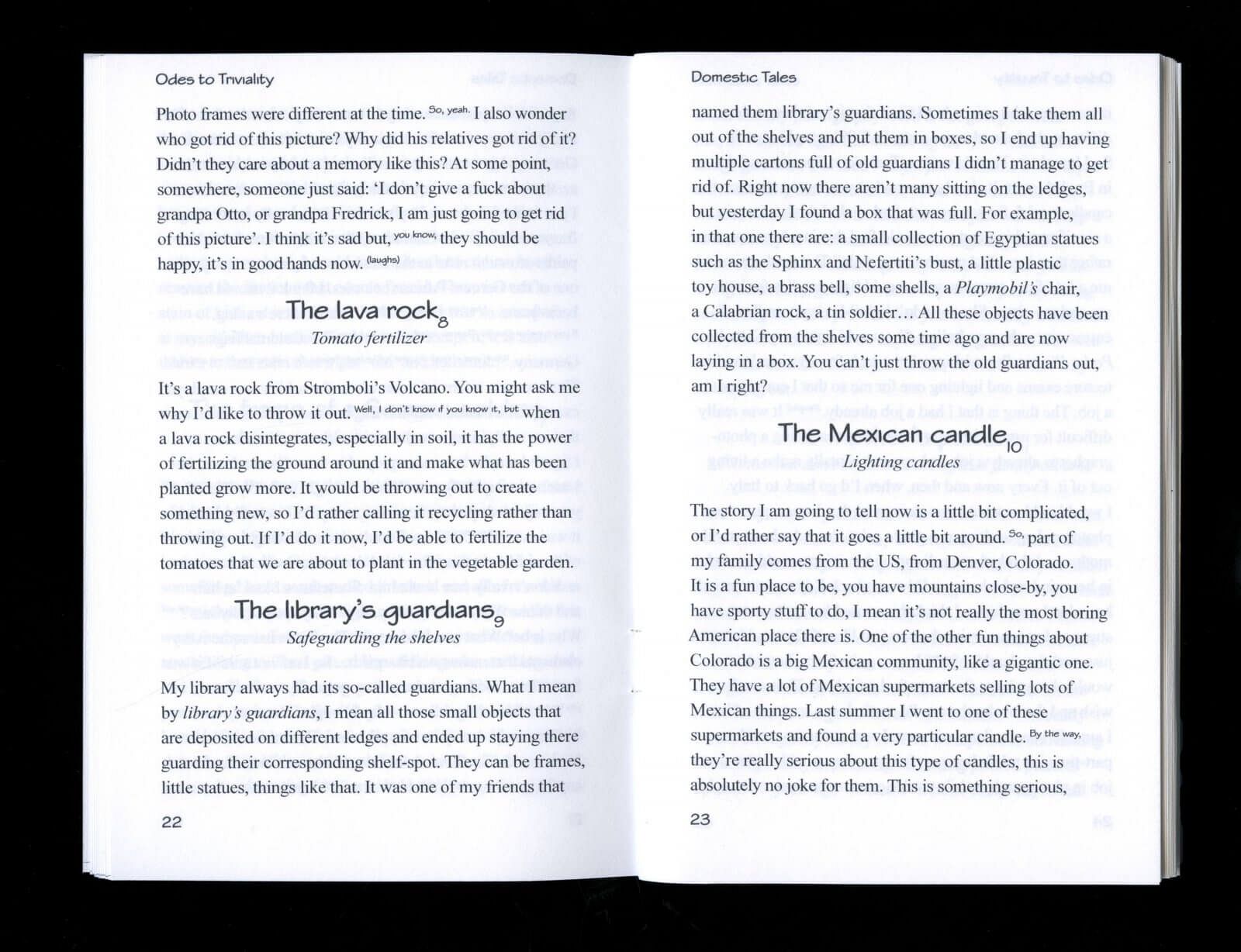
Anna Moschioni
Internship: Bart de Baets, Rosie Eveleigh and Sandra Kassenaar
Read Thesis
… The scraggly charm bracelet you can’t find the courage to throw out, the random knick-knacks that deposited on the shelves, the calendars received every Christmas from your mother, the rocks picked up while walking, the old pile of rags mended over and over again…
By letting owners speak about their mundane belongings and what they remind them of, Domestic Tales – Odes to Triviality is a collection of short stories that invites the reader to reconsider the value of the often diminished ordinary. Especially now, in a moment of time where the domestic space has become crucially central in our daily experience, the house turns into a theatre of memorabilia and repeated gestures, a place for recollections of stories and references. Through the words of their owners objects come to life; they animate oral narratives depicting the grounding role of domesticity. The project dives into humans’ intimate relations with the realm of objects through a mainly written but also audio form. It presents itself as a book; an object that speaks and that functions as a platform for sharing.
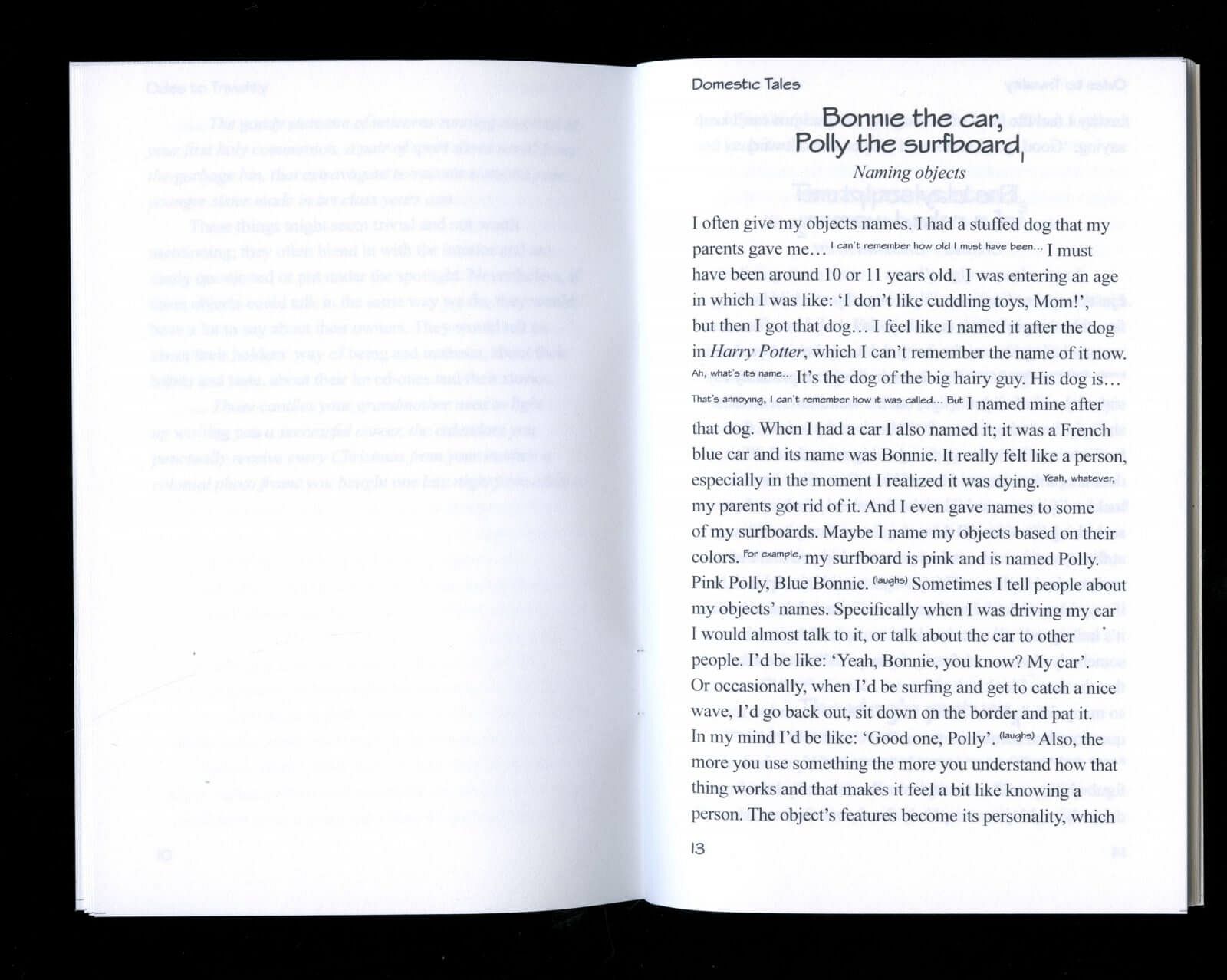
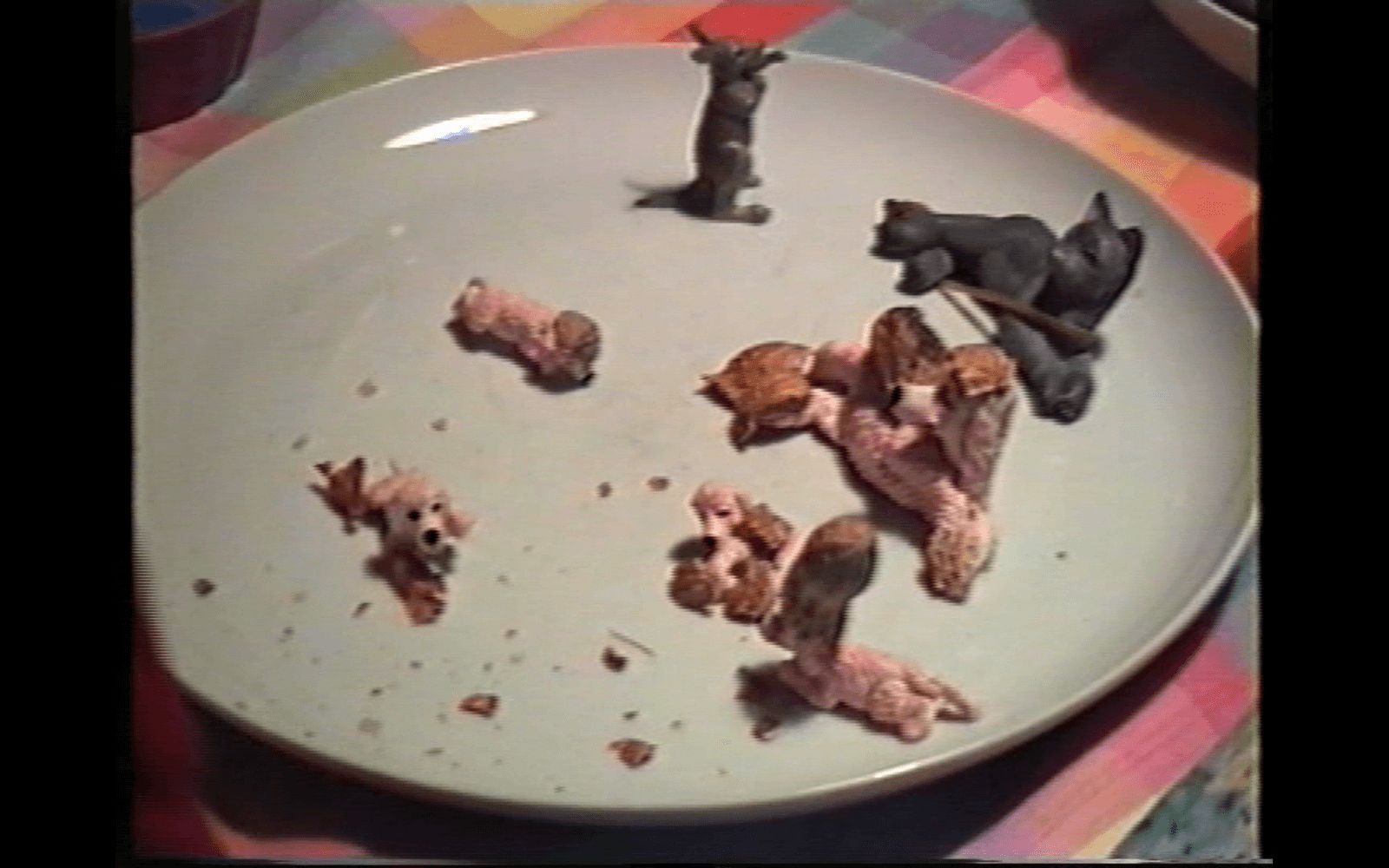
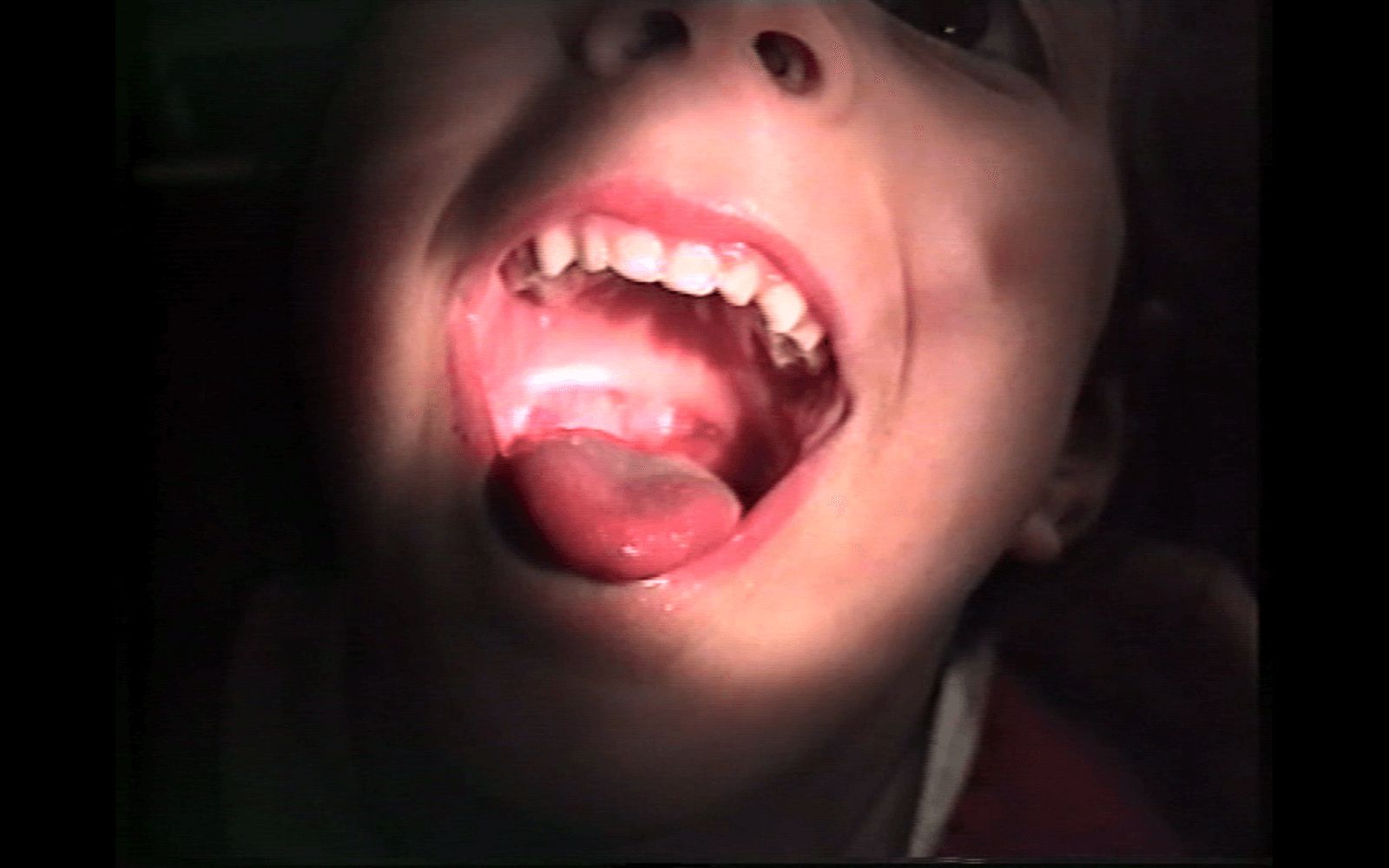
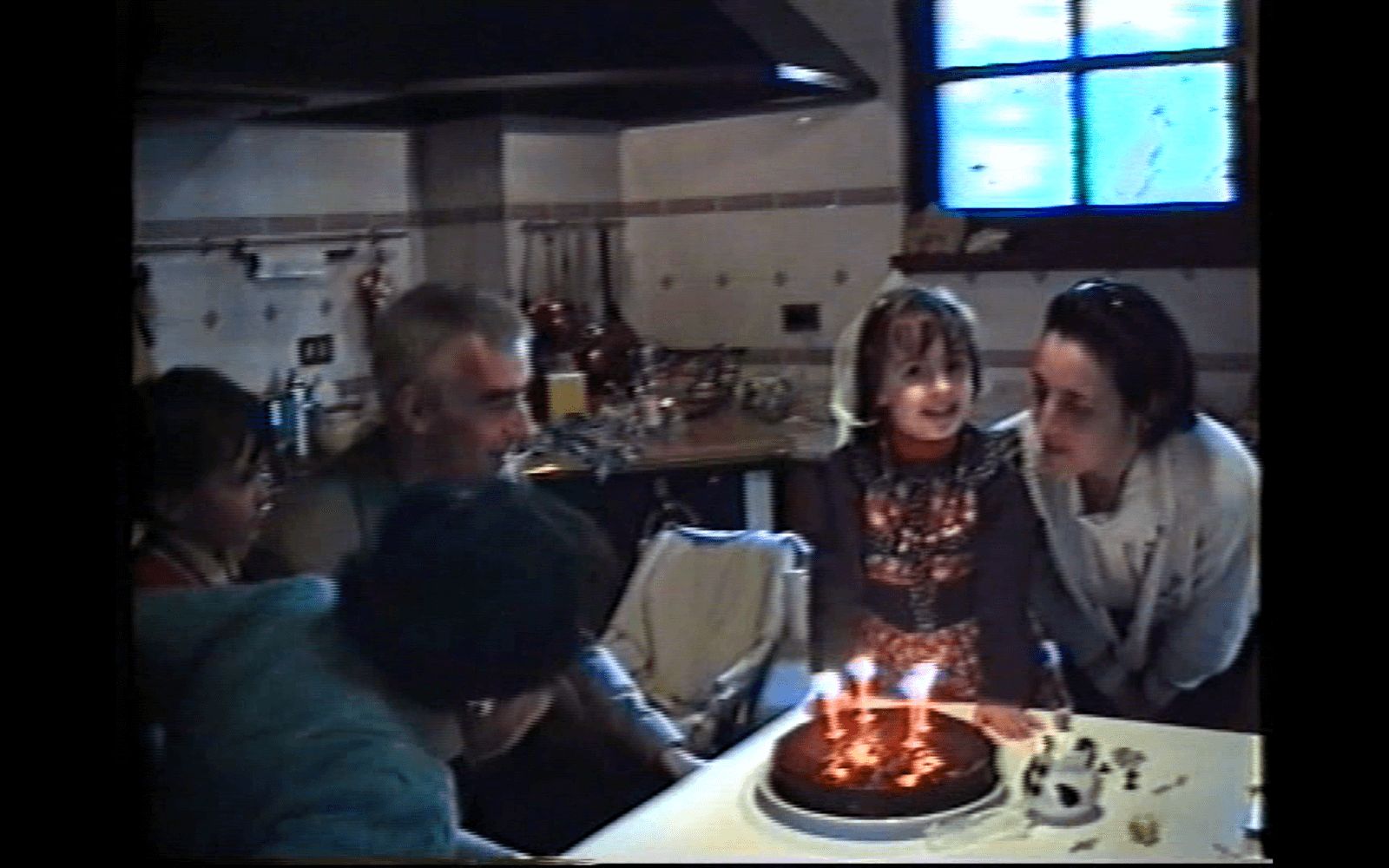
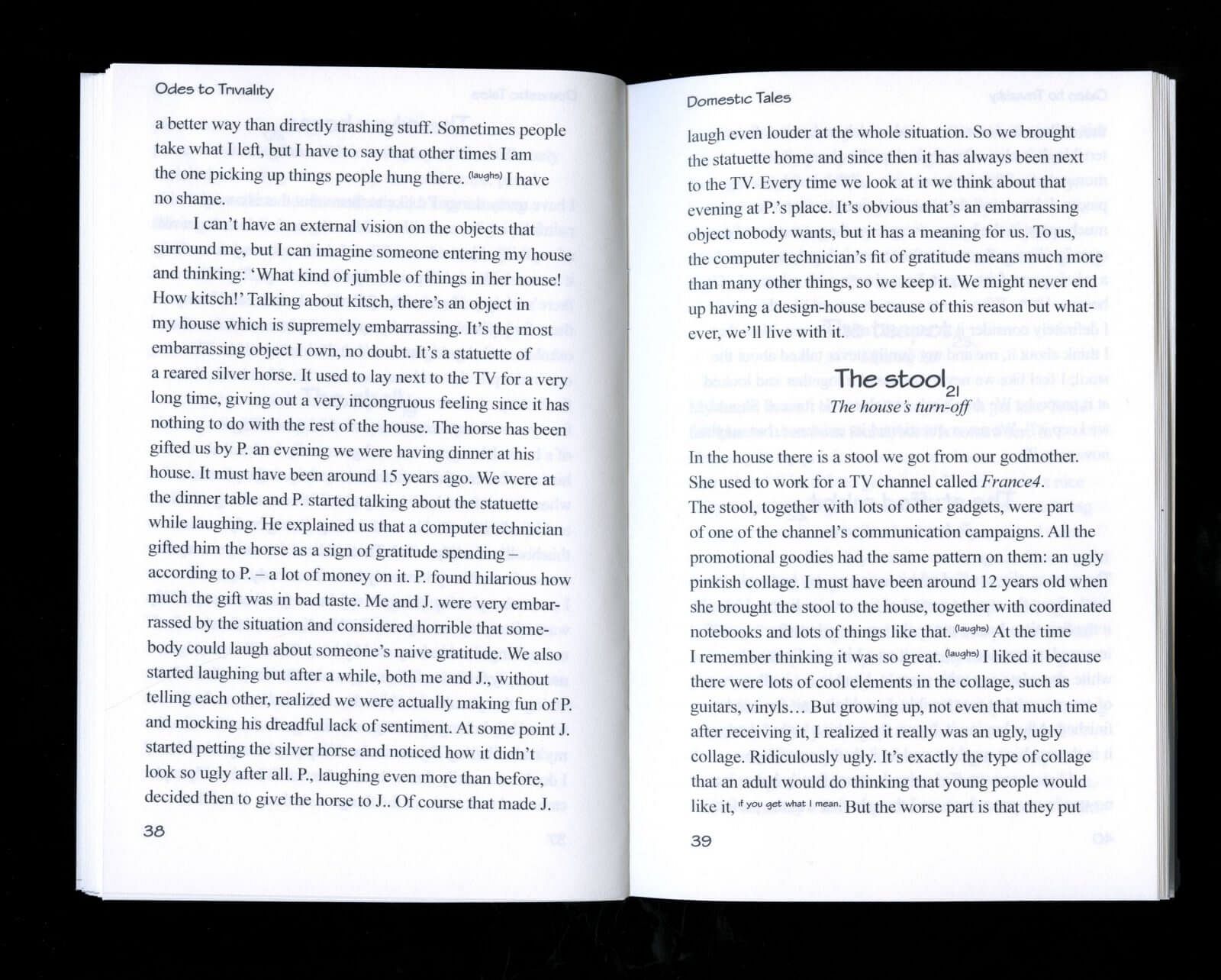
THESIS
‘What was that story again?’ – On Family Lexicons and Anecdotes
By focusing on family lexicons and anecdotes as its main themes of investigation, the thesis dives into family traditions and memories to understand what they represent and how they influence our upbringing and development of personal identity. It discerns the symbolism of these small stories, traits and habits in a broader context and tries to map out how they can affect our social interactions as a society.
The text analyses the role of oral tradition and narratives as a vehicle to portray, preserve and hand down personal family heritage and history. It examines oral narratives as tools to pass on not only tradition, culture, habits and values, but also unhealed traumas, taboos and internal conflicts throughout generations.
The writing focuses on different aspects of the subject, such as the iconicity that ordinary stories acquire with time, the family dynamics that these situations bring to light, as well as the performative quality and the openness to manipulation that oral narratives have. The thesis, which presents itself as a collage of personal experiences and external references – such as conversations with my close ones – aims to unravel the relationship between personal and collective memories and situations.